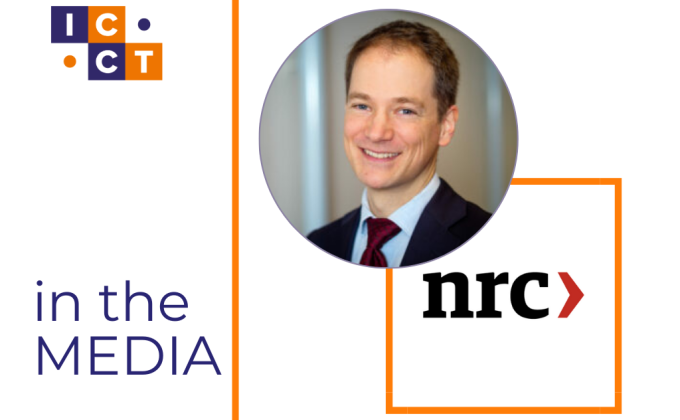On Wednesday 26 March 2014, AFP broke the news that the Central Directorate of Internal Intelligence (Direction centrale du renseignement intérieur, DCRI) had foiled an “imminent terrorist attack” in France in February. Investigators had discovered 900g of explosives in an apartment in the Côte d'Azur and the suspect had recently returned from “jihad in Syria”. French media have since been more cautious in their reporting of the incident with Le Monde arguing that there was no trace of a formalised [terrorist] project. However, the fact remains that this person had returned from Syria, with AFP’s sources in the security sector admitting that this is the scenario they most feared: foreign fighters leaving for Syria and returning as radicalised, trained and seasoned jihadists.
The urgency of the issue has increased largely because the numbers travelling to Arab Spring affected countries, but primarily to Syria, is unprecedented. Latest estimates suggest that up to 11,000 individuals from 74 nations have become opposition fighters in Syria and among Western Europeans, the number is about 1,900. In the European context the problem seems to be affecting countries indiscriminately. To date for instance, there have been confirmations of nationals of at least 15 European countries fighting in Syria and probably make up about 18% of the overall total number of foreign fighters there. Nor does it seem to discriminate by gender or stereotypes. Traditionally, one would assume that the likely traveller to war would be the young unemployed male, potentially from a related diaspora or immigrant community with nothing better to do. However, this past year a wide variety of cases have been reported from the European Union, from young teenagers, highly educated college graduates to whole families.
The problem chiefly concerning European leaders and security services is what will happen to those who return and particularly those who have radicalised towards violent extremism or jihadism while away. It is certainly likely that many will not return. It also equally likely that many will return and not pose significant threats to their home states. However, there is a small but realistic percentage that some returning will, at the very least, require medical/psychological support. At the most extreme, there will be hardened war veterans, potentially radicalised with intent (or instructed) to continue the jihad at home, as highlighted by the recent incident in France.
Since the beginning of 2013, the problem posed by returning foreign fighters has risen steadily up the policy agenda and discussion on the topic is greatly increasing. In January this year, the Radicalisation Awareness Network (RAN, an initiative of the European Commission) hosted a major “Cities Conference” in The Hague on the topic inviting practitioners of local city councils to discuss the phenomenon of foreign fighters and to put together strategies to help mitigate any threat accompanying their return. Beyond Europe, the Global Counterterrorism Forum (GCTF) organised the opening meeting of an initiative on Foreign Terrorist Fighters in February 2014, “to examine the range of issues countries face in dealing with the complex challenge of individuals who leave their home countries to participate in conflicts abroad, acquiring skills and an ideological commitment that could be used in acts of terrorism in their home countries or elsewhere”. At the national level, many other governments are monitoring the situation closely and keeping track of those who have travelled and those that are returning. In the case of the French suspect, French authorities first received a warning from their Greek counterparts who had identified the man en route back to France. Such cooperation and coordination is excellent progress, however, much more needs to be done in order to prevent future attacks.
Of course this is easier said than done. In terms of the “harder” measures, such as legislative, surveillance or law enforcement actions, certain channels are already in place to aid counter-terrorism policies. Inter-regional bodies such as Europol and Interpol greatly aid the sharing of information of suspected criminals across borders. National governments have also enacted certain laws to help aid the prosecution of individuals travelling as foreign fighters.
The “softer” measures for countering violent extremism (CVE) are perhaps more difficult to coordinate, design and implement. Key strategies here are reaching out to affected communities and family members and providing support while relatives and neighbours are abroad fighting, or when those relatives or neighbours return. With this approach questions arise, however, as to who is best placed to do this, whether local police, city council officials or members of the community themselves. Further challenges will be encountered with how well such outreach is received and how it is maintained long after those fighters have returned.
For policymakers facing these challenges, there are myriad actions to undertake in terms of prevention, monitoring and re-integration across multiple policy levels from community and municipal level (micro) to inter-governmental (macro) level. And ideally, these measures would be undertaken in a coordinated manner with clear consistent messaging across the European Union.
In November 2013 the RAN Declaration of Good Practices for Engagement with Foreign Fighters for Prevention, Outreach, Rehabilitation and Reintegration was produced and is as an overview of 21 non-exhaustive good practices that practitioners can use, based on context specific situations they find themselves in. The RAN Declaration provides an overview of lessons learned related specifically to the foreign fighter issue and compiled directly from those working on the ground. It includes good practices related to trust-building, content knowledge and organisation of implementation. The document is a promising first step in providing clear guidance which can be transferred amongst Member States where applicable. To be truly effective, however, this document should be continually updated based on implementation and feedback from practitioners and its use actively promoted in affected countries.
Activities such as the RAN Declaration, Cities Conference and the GCTF initiative are important steps to improve information and good practice sharing and greatly aid closer cooperation. However, more work still needs to be done. Greater sharing of information and good practices is necessary at all levels and close cooperation across Member States is crucial. While this article has focussed on the European sphere, it is also important to remember those making up the remaining 82% of foreign fighters in Syria, many of whom come from the Middle East and North Africa region and will eventually return there. The same policy prescriptions as those laid out in the RAN Declaration should be utilised and forums such as RAN and the GCTF should reach out to affected countries to share knowledge and learn what mechanisms are in place locally. In this sense, empowering frontline practitioners particularly on how to deal with those who have left, their families and those returning should be actively supported by governments at the micro and macro level. Utilising civil society to reach out to those who have left and their families, at all stages during the process of travel, may just help offset and prevent future attacks. The on-going conflict in Syria does not look as though it will abate any time soon and with it the prospect of the levels of foreign fighters diminishing seems slim. Therefore, the sooner European policymakers can work together across borders to share knowledge and information on this issue, the better.








